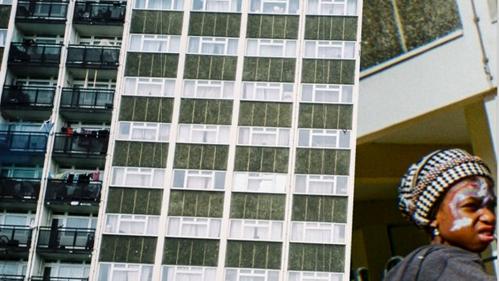
Elijah Maja
This research project aims to explore call and response as an experimental technological system that threads culture together, a technology that puts out a signal picked up by bodies globally. The journalist Chal Ravens references philosopher Yuk Hui stating that ‘technology is not our competitor but a kind of prosthetic that makes us human’.
When we take into account technology as a body of knowledge used to create, extract and process, as well as a means of accessing information, by definition, call and response activates with these same ideologies, providing space for interpretation, new channels for the exploratory nature of music and ways of hearing and communicating. This is something I am keen to explore in depth with this research.
Musically, call and response is an interaction between speaker and one or more listeners, with a response from the listener to the speaker. The research would aim to ground how this technology came about, how it stretches beyond music and uncover where genres like gospel, reggae, jazz, funk, techno and drill to name a few, are all in conversation with folklore in the same framework; calls and responses from bodies globally that inform how new and old sounds work together. Exploring their interconnectedness across speech, tempo, technique and improvisation as methods of expression. The technology can be found outside of music in ritual processes, in how we communicate and, in the back, and forth of knowledge production and distribution. I aim to consider how we embed and encrypt codes into art, ritual and quotidian life in a way that subconsciously mirrors peer to peer computing with a network that encourages review and reworking from present and future peers – with the ‘version’ or ‘riddim’ a technique present in dancehall one example of this encryption.
I am interested in this as a platform that aids the realisation of a new body of work, to challenge ideas of where technology is produced and what it looks like. Thinking through how different genres operate in response to one another and inadvertently the relationship sampling has to call and response. I would like for the research to ground how call and response and its foundations are also a type of technology that encode signals, systems and processes for future actualisation.
Informed by place, people and history, this ode to the endurance of technology will look at audio, texts, videos, interview and other ephemera to allow for a multidimensional, and interdisciplinary focus on the provenance, impact and future of call and response, especially considering the rise of artificial intelligence. It is important in this sense to pinpoint and interrogate analogue technology, body technology as a form as vital as digital; where imagination and accidents meet improvisation and virtuosity, unfurling its past to show what its future looks like.
As an artist and researcher, the bridge between call and response that informs the illusory, the speculative and the concrete holds significance when we think about how new findings across STEM often stem from chance encounters.
Bio:
Elijah Maja is a British-Nigerian artist and researcher from London. Maja’s practice is multidisciplinary, predominantly utilising sound, still and moving image as assemblage and grounds for contemplation. The artist is interested in the origins of technology across the diaspora, and the overlap between memory, encounter and the formation of new audio and visual technique. With a research background, the artist collects and interrogates material across varying disciplines, investigating how space and quotidian life meld to inform the formation of ritual.
https://britishmusiccollection.org.uk/elijahmaja